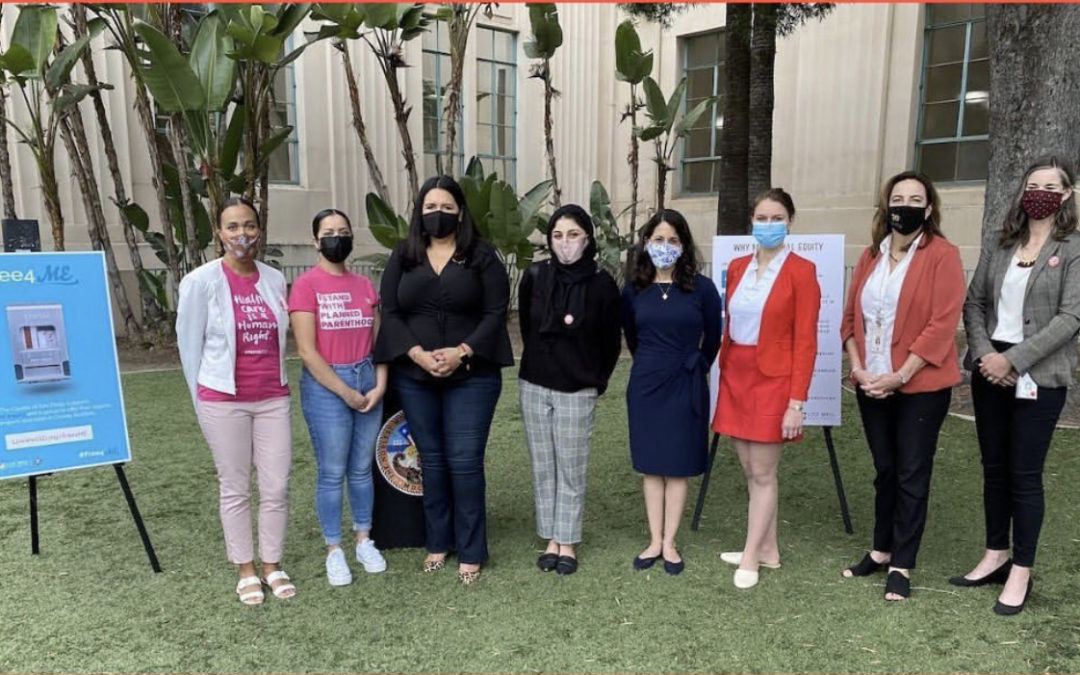This story originally appeared on The San Diego Union-Tribune. Read it here in its original form.
SAN DIEGO —
San Diego County is providing free menstrual products at public facilities across the region to address economic barriers that most often affect women and girls who are homeless or low-income.
The county recently installed 57 dispensers of feminine products at 23 county-owned libraries and family resource and community centers. Each machine is filled with free organic tampons and pads. The pilot program, called “Free 4 Menstrual Equity,” is a partnership with Aunt Flow, a menstrual product dispenser company.
Experts say the issue of “period poverty” — a person’s inability to access or pay for menstrual products — disproportionately affects women or girls who are homeless or low-income.
“Menstrual equity is a fundamental equity issue,” said Board of Supervisors Vice Chair Nora Vargas. “Just as we provide toilet paper and paper towels in our restrooms, we … should provide menstrual products.”
County officials looked at data from national studies and local poverty-level data to assess the need in San Diego, a county spokeswoman said.
Nearly a fifth of the county’s 811,650 working women earned $25,000 or less annually. The average income for females age 16 and older in San Diego County was $31,556 in 2019, while men averaged $42,716, according to the U.S. Census Bureau.
Women make up a quarter of San Diego County’s homeless population, while nationwide, women are 29 percent of the nation’s homeless population and girls are 39 percent of the nation’s homeless youth.
A 2019 study of low-income women in Missouri found nearly two-thirds were unable to afford menstrual supplies in the prior year and nearly half had to choose between buying food and menstrual products.
“We must eliminate these barriers and stigma … and ensure that people are aware of where to turn to when in need,” said Safia Haidari, an organizer with Youth Will, a San Diego group that advocated for the program.
“The fact that these issues primarily affect our most vulnerable communities should motivate all of us towards progress towards menstrual equity,” said Kelly Motadel, child health officer for San Diego County.
A lack of access to feminine hygiene products can have serious health implications, not just for individuals but for the public, Motadel said.
If they can’t access menstrual products, women will try alternative products — such as towels, toilet paper, cardboard — or they’ll ration supplies by extending their use, which can cause infections and may lead to other illnesses and to sexually transmitted diseases.
Women also experience depression and anxiety when they can’t access menstrual products, she said.
Vargas said the county’s goal is to install dispensers at all public county facilities. The pilot program cost is $19,525.
Free4ME dispenser locations in San Diego County can be found online at https://www.google.com/maps/d/u/0/viewer?mid=1OiJ13kESg4LYHyZ2gII-9Put39SKcAlB&ll=32.98000980460903%2C-116.81644305&z=7
Reporters Lauryn Schroeder and Gary Warth contributed to this story.

